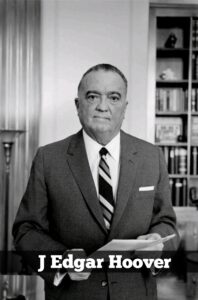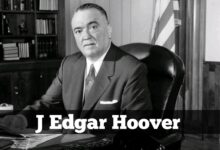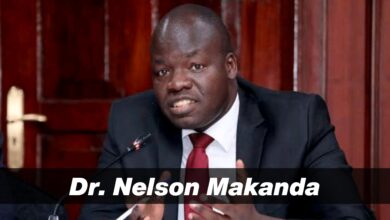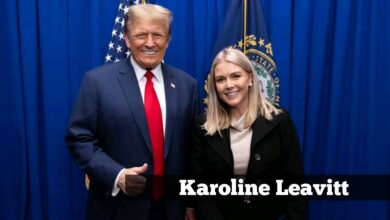J Edgar Hoover: Biography 2023 News, Children, Building, Movies
J Edgar Hoover Biography
John Edgar Hoover, born on January 1, 1895, in Washington, D.C., was one of the most influential and controversial figures in American law enforcement history. He served as the first Director of the Federal Bureau of Investigation (FBI), a position he held from its establishment in 1935 until his death on May 2, 1972. Hoover’s career spanned nearly five decades, during which he transformed the FBI into a powerful and modern crime-fighting agency. However, his legacy is marked by both groundbreaking achievements and allegations of abuse of power.
ALSO SEE: WILLIAM CHISHOLM
Hoover was the youngest of four children born to Dickerson Naylor Hoover, a government employee, and Anna Marie Scheitlin, a homemaker. His upbringing in Washington, D.C., instilled in him a strong sense of patriotism and discipline. Hoover attended Central High School, where he excelled academically and participated in debate teams, showcasing his analytical skills and determination. He later pursued a law degree at George Washington University, earning both a Bachelor of Laws (LLB) in 1916 and a Master of Laws (LLM) in 1917.
Hoover’s career in public service began in 1917, when he joined the Department of Justice as a file reviewer. His efficiency and attention to detail quickly earned him promotions, and by 1919, he became special assistant to Attorney General A. Mitchell Palmer. During this time, Hoover oversaw the controversial Palmer Raids, which targeted suspected communists and anarchists in the aftermath of World War I. These raids solidified Hoover’s reputation as a staunch anti-communist and laid the groundwork for his future leadership.
In 1924, Hoover was appointed Director of the Bureau of Investigation (BOI), the predecessor to the FBI, by President Calvin Coolidge. Hoover immediately set about reorganizing the agency, implementing rigorous hiring standards and training programs to ensure the professionalism of its agents. He established a centralized fingerprint database, which became the world’s largest, and introduced scientific methods of crime detection, including forensic laboratories. These innovations positioned the BOI as a leader in modern law enforcement.
The FBI was officially founded in 1935, and Hoover became its first Director. Under his leadership, the FBI expanded its jurisdiction and took on high-profile cases, including the pursuit of notorious gangsters like John Dillinger, Bonnie and Clyde, and Al Capone. Hoover’s emphasis on public relations led to the creation of the “G-Man” image, portraying FBI agents as heroic defenders of justice. This branding helped garner public support for the agency and elevated Hoover’s status as a national figure.
During World War II, Hoover focused on counterintelligence efforts, investigating espionage and sabotage activities within the United States. In the post-war era, he intensified the FBI’s surveillance of suspected communists and left-wing activists, particularly during the Cold War. Hoover’s anti-communist stance aligned with the political climate of the time, and he worked closely with Senator Joseph McCarthy during the infamous Red Scare.
ALSO SEE: SUSHANT SINGH RAJPUT
Despite his contributions to law enforcement, Hoover’s tenure was marred by allegations of misconduct and abuse of power. He was known for maintaining extensive files on politicians, celebrities, and activists, using illegal surveillance methods such as wiretapping and burglaries. Critics accused Hoover of using these files to intimidate and manipulate individuals, consolidating his authority and ensuring his position remained secure. His secretive practices and resistance to oversight led to widespread controversy, particularly after his death.
Hoover’s personal life also attracted scrutiny. He never married and lived with his close associate, Clyde Tolson, for many years. While some speculated about the nature of their relationship, Hoover remained fiercely private and avoided public discussion of his personal affairs. His dedication to his work often overshadowed his personal life, and he was known for his meticulous attention to detail and unwavering commitment to the FBI.
Hoover passed away on May 2, 1972, at the age of 77. His death marked the end of an era for the FBI, and his legacy continues to be a subject of debate. While he is credited with modernizing law enforcement and establishing the FBI as a premier investigative agency, his methods and ethical conduct remain controversial. Hoover’s impact on American society is undeniable, and his life serves as a reminder of the complexities of power and leadership.
J. Edgar Hoover’s Children
J. Edgar Hoover did not have any children and remained unmarried throughout his life. He was known for his close and lifelong professional association with Clyde Tolson, his deputy at the FBI. Though their relationship raised speculation, Hoover was highly private about his personal matters and rarely spoke publicly about his family or relationships.
J. Edgar Hoover Building
The J. Edgar Hoover Building, named in his honor after his death, serves as the headquarters of the Federal Bureau of Investigation (FBI). Located at 935 Pennsylvania Avenue NW, Washington, D.C., the building was completed in 1975 and represents the Brutalist architectural style. It features a functional design with secure systems that accommodate both operational areas and public tours, symbolizing Hoover’s role in shaping modern American law enforcement. Despite its functionality, the building has faced criticism for its design and impact on the surrounding urban environment.
ALSO SEE: YASHA MUDGAL BIOGRAPHY
J. Edgar Hoover Movies
The film “J. Edgar” (2011), directed by Clint Eastwood, portrays Hoover’s life and career, highlighting key events such as the creation of the FBI and his controversial tactics. The movie, starring Leonardo DiCaprio as Hoover, explores the complexities of his character, including his professional relationships and personal struggles. While the film sparked discussions about Hoover’s legacy, it was met with mixed critical reception. DiCaprio’s performance, however, received widespread praise. Various other documentaries and films have also delved into his influential yet polarizing contributions to American history.

For more detailed information about J. Edgar Hoover, you can explore his Wikipedia page






